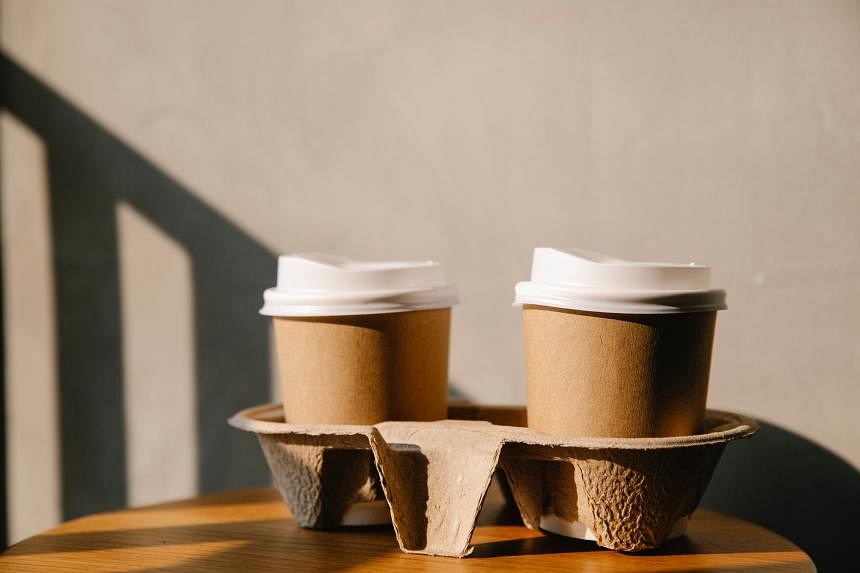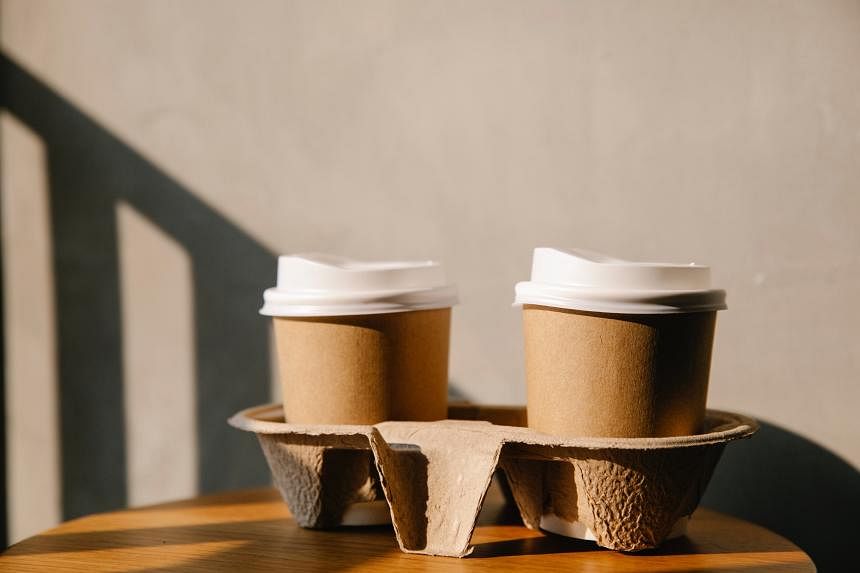
SEOUL - To reduce waste and increase rates of recycling, the Seoul Metropolitan Government will impose a 300 won (S$0.30) surcharge for each single-use cup used at coffeehouses in the city, starting in 2025.
Seoul intends to introduce the disposable cup deposit system by drawing insights from programmes currently operating in the city of Sejong and on Jeju Island.
Both require customers to pay a 300 won deposit when buying a drink in a single-use cup. The customer can get back by returning the used cup through an application run by the Container Deposit System Management Organisation.
The city will also work with the Ministry of Environment to determine the optimal businesses to implement the system and to devise efficient operational procedures.
On Friday, the Seoul Metropolitan Government also introduced a pilot programme where Seoul began to offer a 300 won discount on drinks ordered with personal cups at coffee shops.
The discount provided by Seoul will be given on top of the discounts that coffee shops already have for drinks ordered using a personal cup.
The programme will be piloted in 100 coffee shops across Seoul until Nov 30.
Besides coffeehouses, public facilities such as movie theatres and stadiums will also be required to use reusable cups.
Coffee shops in large buildings that generate more than 300kg of plastic waste per day will be encouraged to adopt reusable cups.
Facilities that use large amounts of single-use plastics, such as funeral homes and sports facilities, will be transformed into zero-plastic hubs that use reusable cups and containers.
For example, once Seoul Medical Centre Funeral Hall expanded the use of multi-use containers, their waste levels were reduced by 80 per cent.
Based on this data, Seoul plans to expand the use of multi-use containers to all large medical centres and funeral homes in the city from 2024.
Parks by the Han River, popular outdoor picnic spots in the capital, will also prohibit visitors from bringing in disposable containers.
Starting from parks near Jamsu Bridge this year to Ttukseom Hangang Park and Banpo Hangang Park in 2024, all Han River parks will be designated “Zero Plastic Zones”.

